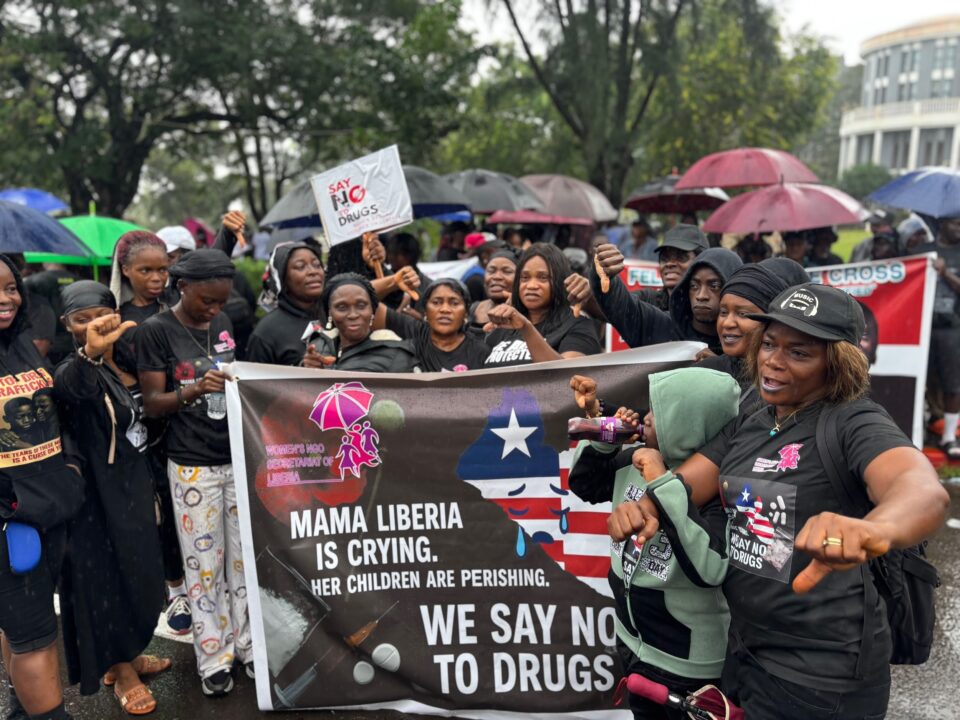FLASHBACK: Recent huge anti-drugs protest in Monrovia
By Joe Noutoua Wandah
Liberia is today overwhelmed by the scourge of dangerous drugs—an epidemic that continues to destroy the nation’s youthful population. The crisis has been fueled not only by foreign importers and local dealers but also by landlords, property owners, and influential figures who shield these actors and allow them to thrive within their communities.
Many Liberians admit, though quietly, that some families and even foreign residents have long benefited from the drug trade. From building luxurious homes to sending children to elite schools at home and abroad, these gains come at the detriment of ordinary communities now ravaged by addiction.
Alarming allegations point to segments of Liberia’s upper class who profit immensely from protecting powerful drug barons—figures who walk freely and untouchable despite the country’s supposedly tough drug laws.
The most glaring case came under former President George M. Weah’s administration, when Liberia recorded its biggest drug bust in history: a seizure worth hundreds of millions of U.S. dollars, which passed through electronic scanners at the APM Terminal before being traced to a Lebanese-owned cold storage facility along Somalia Drive. Yet, to the shock of the public, the alleged culprits—including a Brazilian national and several Liberians—were later released by the courts for “lack of evidence.”
Cllr. Arthur Johnson, one of Liberia’s respected legal minds, lamented:
“Those culprits were released by the very sons and daughters of our affected communities. They walked free in the face of visible evidence, while the youth continue to die from drugs.”
Ordinary Liberians know these importers and dealers. In many cases, they are landlords, relatives, or even in-laws, exploiting poverty by providing support to struggling parents in exchange for loyalty and silence. This network of protection allows them to penetrate deeply into the social fabric, aided by higher-ups within government.
One disturbing account emerged when a female officer of the Liberia Drug Enforcement Agency (LDEA) alleged that she discovered drugs in the vehicle of a sitting lawmaker along Somalia Drive in Gardnersville. When she and her boss were summoned before the Legislature, she reportedly collapsed under pressure, and the case mysteriously disappeared—never to be heard of again.
Beyond Monrovia, Liberia’s gold and diamond mines have become major hubs for drug trafficking, where minerals are exchanged for narcotics. In the nation’s interior, foreigners flood reserved forests under suspicious circumstances, often beyond the effective control of security agencies.
The recent death of three young people in the Paynesville community near Monrovia underscores the urgency of the crisis. Despite street parades, petitions, and public outcry, the root of Liberia’s drug problem lies within its very communities—where relatives, loved ones, and leaders profit from the trade while end users are stigmatized as criminals.
Unless Liberia finds the courage to confront the real power brokers behind this trade, no amount of rallies, banners, or black-clothed petitions will save its youth from the grip of drugs.

